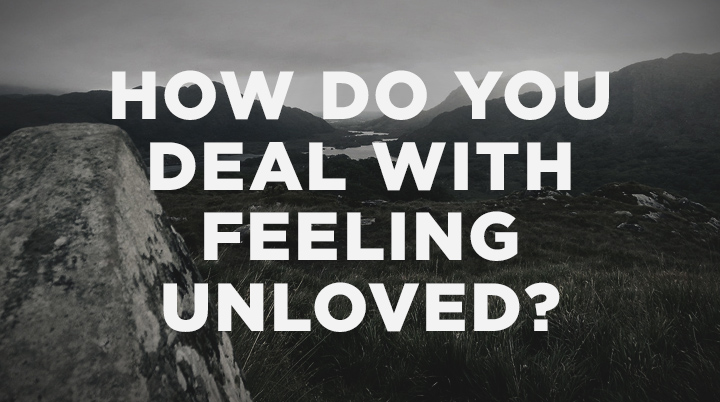Latest
-
Objections to the Christian Faith from the Unchurched and De-Churched
 Tue Dec 02, 2014
Tue Dec 02, 2014
by Resurgence -
Craig Groeschel: We Innovate for Jesus
 Tue Oct 14, 2014
Tue Oct 14, 2014
by Resurgence -
Mark Driscoll: Revelation
 Tue Oct 07, 2014
Tue Oct 07, 2014
by Resurgence -
RESURGENCE LEADERSHIP #034: JOHN PIPER, WHY I TRUST THE SCRIPTURES, PART 2
 Tue Sep 30, 2014
Tue Sep 30, 2014
by Resurgence -
Resurgence Leadership #033: John Piper, Why I Trust the Scriptures, Part 1
 Tue Sep 23, 2014
Tue Sep 23, 2014
by Resurgence

Archives
How Do You Deal with Feeling Unloved?

Everyone feels the basic needs for love, security, and significance. But we should be wary of these psychological needs.
I certainly feel the need to be loved. When I feel like love is temporarily missing from my marriage, I feel empty, even undone.
And the need for significance? Absolutely. When students fall asleep in my class or give lackluster evaluations at the end of a semester, my need to be esteemed and be significant is just dying for a few crumbs.
Hmm. The one about love makes sense, but the one about significance sounds suspiciously self-centered—and that makes me wonder about the entire category of needs.
Here is something that was helpful to me when I taught at a recent ReTrain gathering. The basic idea is this: be wary of your psychological needs. They could be desires and demands that have gone undercover. Rather than satisfy them, we might first want to repent them down to size.
Psychological needs
Somehow, psychological needs have crept into our self-understanding. That is, we have physical needs, spiritual needs, and psychological needs. These psychological needs include needs for love, security in relationships, significance in our work, respect, and so on. Love is usually first on the list, but the list can grow quickly from there.
Rising suspicions
Love feels like home to us. We were forged by the divine lover. As such, love is just suited to our souls. But needing love from other people? Does Scripture say that?
If that is true, we would be horribly handicapped in our relationships, because that need would never be fully met, and we would be left always teetering on the brink of emptiness and despair. But the idea stays alive. So we make it more religious by adding that we must look to God, who is the perfect satisfier of our needs.
Your psychological needs could be desires and demands that have gone undercover.
That sounds better—anything with God sounds good. But the theory does not work very well in practice. For example, when I want my wife to love me, and I think she falls short, I rarely find it helpful to say, “No problem, God loves me, all is well.” At those times, I am pleased that God loves me—I guess I am pleased—but what I really want is my wife to love me in a very specific way.
Need is starting to show its true identity. Listen closely and “I need it” can be a veiled version of demands and idolatry. We might want many things—a warm sunny day, a good night’s sleep—but to say that we need them elevates these wants into controlling desires.
Sin, it turns out, can often be something that is fine in small doses but is idolatrous when those doses get larger. To want to be loved is human; to define it as a need is idolatrous. God certainly loves his people, but he does not satisfy idolatrous desires (James 4:3).
Listen closely and “I need it” can be a veiled version of demands and idolatry.
Repent needs down to size
The best course is to smash those desires: “Why, Lord, am I so concerned about me? I love being loved more than I love you and more than I love others.”
Then we can set off on a completely different course. Instead of navigating through the treacheries of needing love and being controlled by rejection and failure, we can try this: to love others more than we want to be loved by others. When we read the Gospels about the man Jesus—the only fully-functioning human being—that was his strategy.
This course does not inoculate us against hurt in relationships. We will still desire love, and may even feel those hurts all the more because we know that we were intended to live in a culture of mutual love. But hurts and failures will no longer dominate us. Instead, they will loop us back to that question, “How do I love God and my neighbor now?”